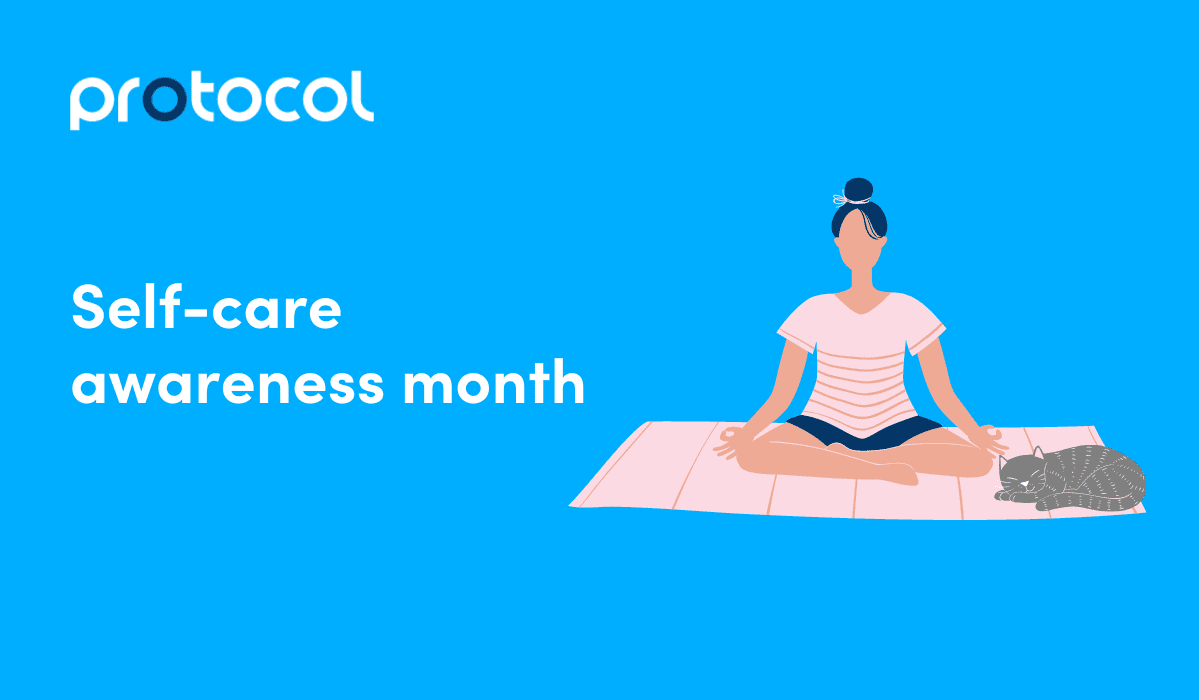September is self-care awareness month but self-care is something you should be practicing every day in order to support your mental health. Many stresses can arise from work and home life that can pull your attention in many different directions and this can mean that you ultimately spend very little time looking after yourself and your mental health. Being mindful of the mental health struggles of those around us is really important, but before you can help anyone else, you have to take care of yourself. As they say whenever you get on a flight – apply your oxygen mask before helping someone else.
What is self-care?
Self-care is the daily process of taking care of yourself from a physical, mental, and emotional standpoint. Self-care is essential in managing any mental health that you may be struggling with and also in helping to prevent future episodes of anxiety, depression, or any other mental health issue.
Self-care isn’t a one-off thing either – one meditation session won’t make up for a sleepless night and one gym session won’t be productive if you aren’t backing it up with a healthy, balanced diet. It’s something that you need to be regimented in implementing to make sure you’re getting the time you need to nurture and replenish your mind.
It’s worth adding that self-care isn’t meant to be a replacement for other mental health support like talking therapy or medication, but rather a supplement to help you manage your mind more effectively on a day-to-day basis.
Physical
As mentioned before, getting enough sleep is one of the most effective things you can do for your physical and mental health. This will give you more energy to cope with the challenges of the day ahead. This can naturally be more challenging if you suffer from Insomnia or any other sleep-related issues, but you can find support for this here.
It is also important to think about your diet and exercise. Trying to eat healthily and giving your body the right fuel to face the day will help with your energy levels and generally help with your overall health. Likewise exercising regularly, especially if it involves getting outdoors and into the sun will help with your mood and physical health. Exercise doesn’t have to be strenuous either, do whatever your body allows. Even a brisk walk will make a difference to your mental health.
Emotional
Talking to, and spending time with friends and family, is a great way to look after your emotional wellbeing and may help you to process challenging feelings like anxiety, anger, fear, or sadness. If you find it difficult to reach out, you can start small with a text or short phone call. If don’t have those connections then you can try and build them, taking part in community activities or joining a book or sports club. You can also get companionship from pets, and having a cuddle with your dog or cat if you have one, is a good way to ease your mind.
Equally having that personal time, just to yourself is vital as well. Taking a personal day to spend some time on your hobbies is an important part of keeping your emotional wellbeing balanced. Some people find meditation useful to centre themselves as well as keeping a thought journal to keep track of when and why they might be feeling certain emotions, helping to identify specific triggers.
Mental
Looking after your mental needs is a case of doing things to keep your brain sharp, things that will stimulate your mind and keeps your brain energized. For some people, this will be doing a puzzle like a crossword or sudoku, reading a novel, or watching a movie.
It’s also about giving yourself time off when you need it and doing what you can to reduce stress. For example, saying no to additional tasks or overtime at work, and taking regular breaks during the day and having time our from things like technology and social media.
If you need help and support with your mental health you can find resources and reach out to the following organisations:

